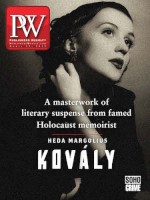While Jewell Parker Rhodes has written six adult novels, a memoir, and two writing guides, and holds an endowed chair at the Virginia G. Piper Center for Creative Writing at Arizona State University, she professes to be most proud of the books she has written for children. Ninth Ward, her first novel for middle-grade readers and a Coretta Scott King Honor book, was published in 2010; Sugar, her second, was published in 2014; her third, Bayou Magic, will be released in May.
“I always wanted to write for children,” Rhodes, 60, says. “To me, the pinnacle of my career is writing for youth. I can die happy: I have succeeded in doing what I have always wanted to do.” She’s very proud of her books for adults, too—but she describes them as manifestations of “figuring out who I was and what I wanted to say” before attempting to write middle-grade fiction. Plus, she says, children simply are “the best audience.”
Although Rhodes’s first novel, Voodoo Dreams, was published in 1993, she’s been writing for most of her life. She fondly recalls her public reading debut at age eight, when she read her story, “The Last Stream,” to “all of the third-grade classes” at Homewood Elementary in Manchester, Pa., a predominantly African-American neighborhood on Pittsburgh’s North Side.
Despite her lifelong compulsion to tell stories, to write, and that brief brush with third-grade literary fame, Rhodes says she “never once thought” that she could actually become a published author because she never read any books during her childhood “that had any diversity.” There were neither characters with her skin color nor any whose lives reflected her own experience of being raised in the inner city by her grandparents after her mother abandoned her as an infant.
“There were real issues that I did not see represented in a book,” she notes. “There was a master narrative and I was invisible within it.” Even though Rhodes worked part-time at Half Price Books and Waldenbooks during high school and college, it wasn’t until her junior year at Carnegie Mellon University, in 1975, that she discovered that there were African-Americans not only writing but also getting published.
Rhodes’s epiphany came when she picked up Gayl Jones’s debut novel, Corregidora (Random House, 1975) from a shelf at the university library. When she realized that Jones was African-American and that the novel explored the African diaspora, Rhodes distinctly remembers thinking, “I want to do that. I want to write stories. I want to be a writer.” But rather than writing what she knew, as her instructors urged her, she decided to write “what I can imagine.” After earning her B.A. in theater criticism, Rhodes remained at Carnegie Mellon, earning an M.A., followed by a Ph.D. in English with a focus on creative writing.
For Rhodes, children’s literature can be world-changing; she describes character-driven fiction as a necessary tool for attaining self-knowledge, as well as for developing empathy for others. And she believes that booksellers are at the frontlines of making this change. “Every time a bookseller hands a child a book, they are doing something that is the heart and soul of the American dream and the American ideal,” she says. “It’s a very sacred tradition.”



 Volume 262
Issue 15
04/13/2015
Volume 262
Issue 15
04/13/2015





